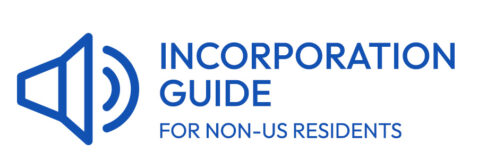
Setting Up a US Company as a Non-US Resident: A Deep Dive
Part 1: Pre-Planning Essentials
- The Importance of Location: Discusses how choosing the right state for your business is a strategic decision based on factors like target market, supplier proximity, and local business environment.
- Intellectual Property Protection: Covers the importance of protecting company ideas and branding in the US market and advises seeking specialized legal help from IP attorneys familiar with US regulations.
- Navigating Licenses and Permits: Explains that license and permit requirements vary significantly depending on the industry and location of the business, requiring thorough research.
- Visa Requirements: Explores the possibilities of owning a US company without a visa, clarifying that active management within the US necessitates a work visa, while ownership and directorship can be maintained remotely.
- Building a US-Based Team: Discusses the complexities of hiring US employees versus bringing staff from another country, highlighting the implications for payroll, taxes, and visas.
- Funding Your Venture: Addresses the financial hurdles faced by non-US residents due to lack of US credit history and the importance of a solid financial plan that considers bootstrapping, loans, and investment options.
- Operational Considerations: Emphasizes the need to plan for the practical aspects of running a US business, including marketing to a US audience, managing supply chains, and understanding import/export regulations.
- Tax Incentives: Advises focusing on building a strong business foundation first, as tax incentives are often locally negotiated and more common for larger companies creating significant jobs.
Part 2: Structuring and Incorporating Your Company
- Choosing a Company Name: Covers the basic step of selecting a name for your company and ensuring its availability in the desired state.
- Understanding Legal Structures: Explains the two most common structures for non-US residents – C-corp and LLC – outlining the key differences in taxation and structure, including double taxation for corporations and pass-through taxation for LLCs.
- Liability and Ownership: Discusses the limited liability protection offered by both C-corps and LLCs, safeguarding personal assets from business debts and lawsuits. It also explains the differences in ownership between shareholders in corporations and members in LLCs, highlighting their distinct rights and responsibilities.
- Selecting Your State of Incorporation: Emphasizes that incorporation is not restricted to the state of business operation, with many opting for business-friendly states like Delaware or Nevada.
- The Incorporation Process: Details the steps involved in gathering necessary documents, filing with the chosen state, and paying associated fees, emphasizing the value of professional guidance for non-US residents navigating legal complexities.
- The Organizational Meeting: Explains the purpose of this meeting in formalizing the company structure, appointing officers and directors, issuing shares, and establishing operational foundations.
- Obtaining an EIN: Stresses the critical importance of obtaining a Federal Employer Identification Number (EIN) for conducting any financial activities in the US, including opening bank accounts and hiring employees.
- Opening a US Bank Account: Addresses the challenges faced by non-US residents, with many banks requiring physical presence or hesitant to work with international clients, recommending seeking banks specializing in international clientele.
Part 3: Compliance and Reporting
- Beneficial Ownership Information Reporting (BOI): Explains the Corporate Transparency Act of 2024, requiring most US companies, including those owned by non-residents, to file a BOI report with FinCEN (Financial Crimes Enforcement Network) within 90 days of formation.
- Transparency Requirements: Details the information needed in the BOI report, including identifying beneficial owners, providing their names, addresses, dates of birth, and ID numbers, emphasizing the importance of accuracy and timeliness in filing to avoid penalties.
- Deadlines and Updates: Clarifies the strict filing deadlines and the requirement to update the BOI report within 30 days of any ownership information changes.
- Global Transparency Trends: Highlights the BOI report as part of a broader global shift towards increased transparency in business dealings and the importance of building trust and legitimacy within the US system.
Part 4: Leveraging Global Advantages
- Embracing a Global Perspective: Emphasizes the unique advantage of a global perspective that non-US residents bring, allowing them to identify opportunities and make connections that US-based entrepreneurs might miss.
- Expanding Network and Reach: Explores the benefits of a global network of contacts and potential partners, opening doors to new markets, suppliers, and investors.
- Fresh Perspectives and Innovation: Discusses the value of approaching challenges with fresh perspectives and innovative solutions, driving breakthroughs in the competitive US market.
- Defining Your Unique Value Proposition: Encourages non-US residents to clearly define what makes their business different and what specific needs or problems they can solve better than the competition.
- Power of Storytelling: Emphasizes the impact of sharing personal journeys, struggles, and insights to build emotional connections and trust with the target audience.
- Strategic Collaborations and Partnerships: Highlights the power of forming alliances with businesses and individuals that complement skills and expand reach and impact.
- Seeking Mentorship and Guidance: Advises connecting with experienced entrepreneurs who have successfully navigated the US business landscape to gain valuable support and insights.
- Embracing Cultural Heritage: Encourages non-US residents to celebrate their diverse backgrounds and unique perspectives, showcasing the enriching qualities they bring to the US business world.
- Making a Meaningful Impact: Concludes by inspiring non-US residents to combine their global perspective, network, and innovative approach with a clear value proposition and strategic connections to create successful businesses and contribute meaningfully to the American business ecosystem.
We have helped thousands of non-US residents to set up their companies in the US with 34 years of expertise. For more information, check out our blog and follow us on Facebook and Twitter to make sure you do it right.

